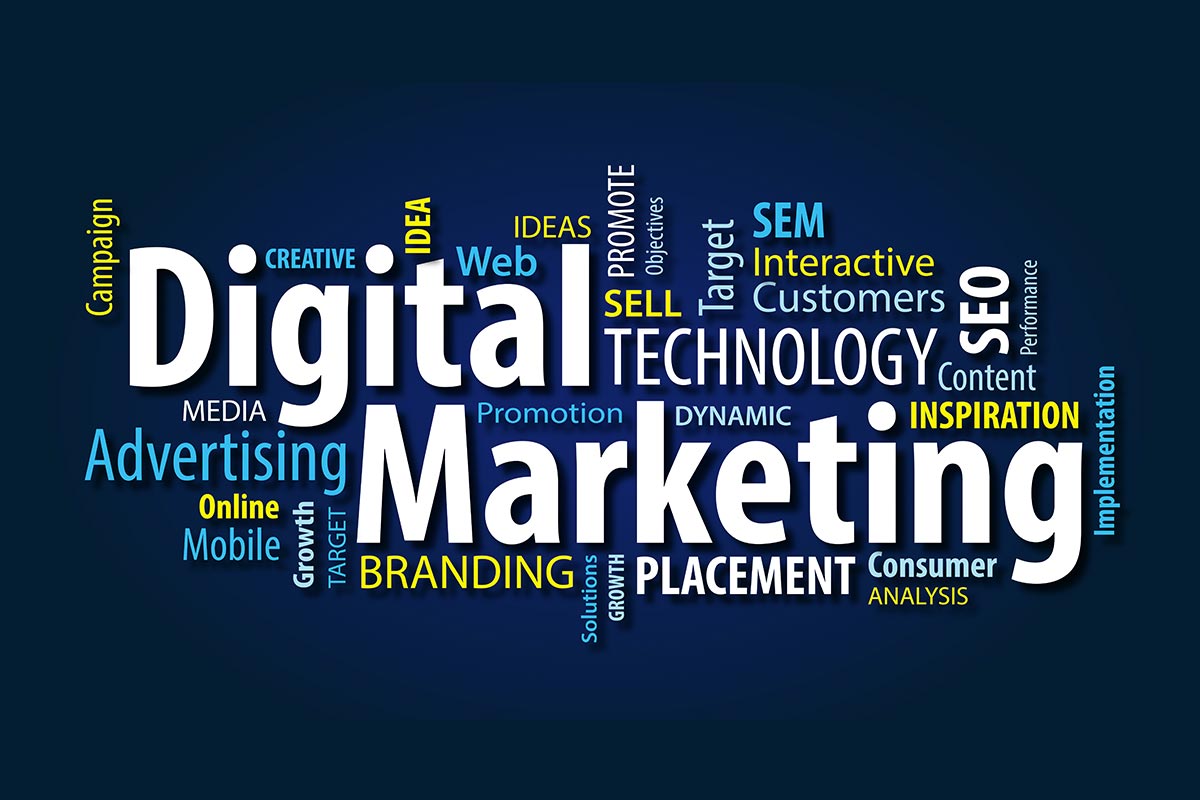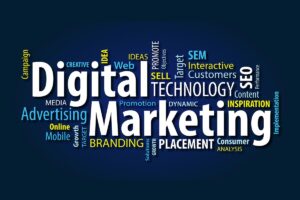What is Digital Marketing?
Digital marketing refers to the use of digital channels, platforms, and technologies to promote products or services to a target audience. Unlike traditional marketing, which includes TV, print, and radio, digital marketing is rooted in the online world and includes tools like websites, social media, search engines, email, and mobile apps
Why Digital Marketing Matters
The internet has fundamentally changed consumer behavior. People now research products, read reviews, compare prices, and even make purchases—all online. According to recent data, over 4.9 billion people use the internet globally, and that number is still growing. This gives businesses unprecedented access to potential customers, no matter where they are.
Here are some key reasons why digital marketing is essential:
-
Global Reach: Digital campaigns can reach a worldwide audience at a fraction of the cost of traditional media.
-
Cost-Effective: With PPC advertising, email marketing, and social media, businesses can generate significant ROI without massive budgets.
-
Measurable Results: Tools like Google Analytics let you track performance, user behavior, and campaign effectiveness in real time.
-
Personalization: Digital platforms allow brands to target specific demographics and deliver personalized messages that resonate with users.
-
Customer Engagement: Social media, email, and content marketing enable direct, ongoing communication with customers.
Core Components of Digital Marketing
To build a successful digital marketing strategy, businesses typically use a mix of the following elements:
1. Search Engine Optimization (SEO)
SEO is the art and science of optimizing your website so it ranks higher on search engines like Google. This involves on-page techniques (like keywords, meta tags, content structure), off-page techniques (like backlinks), and technical SEO (like site speed and mobile optimization).
Why it matters: Higher search rankings = more visibility = more traffic = more potential sales.
2. Content Marketing
Content is the heart of digital marketing. Whether it’s blog posts, videos, infographics, podcasts, or eBooks, content marketing aims to provide value to your audience, build trust, and guide them through the sales funnel.
The golden rule? Focus on helping, not just selling.
3. Social Media Marketing
With billions of active users across platforms like Facebook, Instagram, X (formerly Twitter), LinkedIn, TikTok, and YouTube, social media is a powerful tool for brand awareness, engagement, and customer service.
Each platform has its own tone, style, and audience, so a tailored approach is crucial.
4. Email Marketing
Despite being one of the oldest forms of digital marketing, email remains incredibly effective. It’s personal, direct, and great for nurturing leads and building loyalty.
From newsletters and promotions to automated drip campaigns, email marketing offers an excellent ROI when done right.
5. Pay-Per-Click Advertising (PPC)
PPC ads (like Google Ads or Facebook Ads) allow businesses to bid for ad placement in a search engine’s sponsored links. You only pay when someone clicks on your ad — hence the name.
It’s a quick way to drive traffic and conversions, especially when paired with organic strategies like SEO.
6. Affiliate and Influencer Marketing
Leveraging other people’s audiences can be a smart move. Affiliates promote your products for a commission, while influencers can amplify your brand message through their social platforms.
Authenticity is key here—partner with voices that genuinely align with your brand.
7. Mobile Marketing
With the explosion of smartphones, mobile marketing is more important than ever. This includes SMS marketing, mobile-friendly websites, app-based marketing, and location-based campaigns.
If your strategy isn’t optimized for mobile, you’re missing out on a massive audience.
Trends Shaping the Future of Digital Marketing
The digital marketing landscape is constantly evolving. Here are a few emerging trends every marketer should keep an eye on:
– Artificial Intelligence (AI) and Automation
AI is powering chatbots, recommendation engines, predictive analytics, and more. Marketing automation tools like HubSpot, Mailchimp, and Marketo help streamline repetitive tasks and improve efficiency.
– Voice Search Optimization
With smart assistants like Alexa and Siri becoming mainstream, optimizing content for voice queries is crucial. This means using more conversational keywords and providing direct, concise answers.
– Video Marketing
Video continues to dominate online content consumption. Platforms like YouTube, TikTok, and Instagram Reels show the power of short-form, engaging video in grabbing attention and boosting conversions.
– Personalized Experiences
Consumers expect personalized experiences, from tailored email content to product recommendations. Brands that leverage data to deliver personalization at scale will stand out.
– Privacy and Data Security
With growing concerns over data privacy (think GDPR and cookie policies), businesses need to prioritize transparency and compliance. Ethical marketing is no longer optional—it’s expected.
Building a Digital Marketing Strategy
So how do you pull it all together? Here’s a basic framework to get started:
-
Define Your Goals: Are you looking to increase traffic, generate leads, boost sales, or grow your social following?
-
Know Your Audience: Build customer personas and understand their pain points, preferences, and behavior.
-
Choose the Right Channels: Pick the platforms that align with your goals and audience.
-
Create Valuable Content: Focus on solving problems and offering value, not just pushing products.
-
Measure and Adjust: Use analytics to track performance, test new ideas, and refine your strategy continuously.
Conclusion
Digital marketing is not just a buzzword—it’s a vital business function in today’s digital-first world. With the right strategy, tools, and mindset, any brand can harness the power of digital to grow, connect, and thrive.
The key is to stay informed, stay creative, and stay customer-focused. Because at the end of the day, successful digital marketing isn’t just about clicks or likes—it’s about building real relationships in a digital world.

